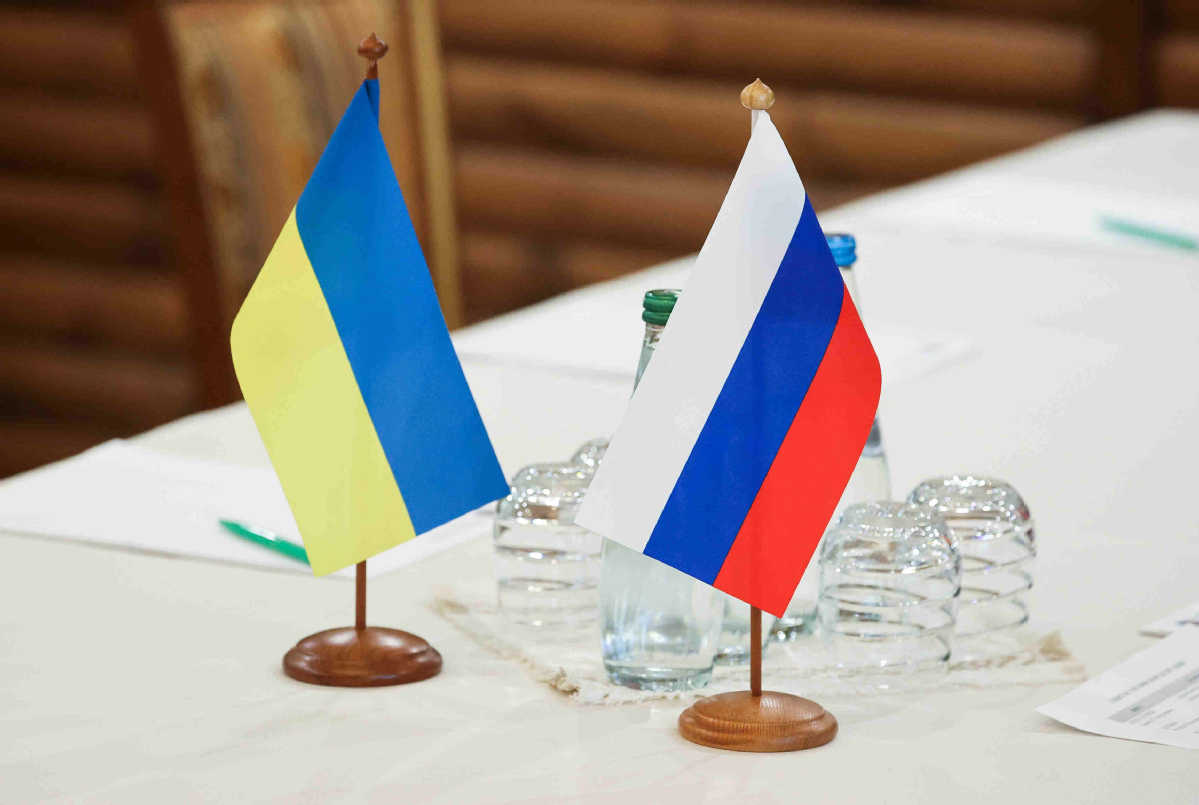Ukraine crisis: Who is to blame for current conflict?


The world is beset by the Russia-Ukraine conflict and its cascading spillovers.
The Ukraine issue involves complex historical veins, and the current crisis is brought about by various factors. Many Western experts poignantly pointed out that the eastward expansion of NATO, headed by the US, is the root cause, and they had long ago warned of risks that may arise from NATO's relentless encroachment against Russia.
However, ignoring Russia's legitimate security concerns, certain countries punched Russia into a corner by launching NATO's five rounds of enlargement and moving the bloc over 1,000 kilometers eastward to near Russia's borders, which eventually lit the fuse to the powder keg.
Rather than putting out the fire and ending the war, a certain big country is doing just the opposite. Prior to the conflict, it hyped the possibility of a hot war and offered Ukraine a large number of weapons. During the crisis, it did not make efforts to ease the situation or promote peace talks, but delivered even more weapons to Ukraine to fuel the tension. What's even worse, it imposed extreme unilateral sanctions on Russia alongside its allies, gumming up forcibly the global supply and industrial chains and further dragging down the world economy that was already hard-hit by the COVID-19 pandemic.
Creating crises, shifting blame and exploiting chaos to reap profits are the usual tactics of that country to practice its hegemony. Just recall what it did to the Federal Republic of Yugoslavia in the 1990s, to Afghanistan and Iraq at the beginning of this century, and to Libya and Syria over the years.
When the Ukraine crisis broke out, that country pledged to provide over $1 billion in aid to Ukraine, but in fact, a considerable proportion was spent on ammunition, channeling a huge sum of funds into its own military-industrial complex.
The sanctions against Russia have stirred the global stock market and driven up the prices of oil, gas and commodities, pouncing upon the global economy and trade as well as the livelihoods of people around the world.
But oddly, energy giants in that country have made a big fortune during this crisis, with their liquid natural gas exports up by 16 percent month-on-month in March, a record high, and more than 60 percent of the total was shipped to Europe.
Prices of Russian assets have plunged and a large amount of haven-seeking international capital has flowed to that country, making its stock market soar and financial consortia richer. The world has again seen the selfishness and hypocrisy of that country.
Yet another puzzle is that it is often other countries, even allies of that country, which pay for the subsequent disasters. History has shown that Europe's interests have been compromised by that country more than once, the last time in Afghanistan and this time in Ukraine. Facing the war in Ukraine, it is Europe that bore the brunt and fell into a security dilemma. The natural gas price in Europe is skyrocketing, and European people are taking the beating. The continuous influx of Ukrainian refugees has also placed a heavy economic and social burden on Europe. EU countries need to see clearly the "offshore balancing" trick of that country as soon as possible, upgrade their strategic autonomy, and stop "pulling chestnuts out of the fire" for that country, which is the way forward for Europe to protect its own interests.
While provoking conflicts between Russia and Ukraine and perplexing the European situation, that country has not ceased to upset the Asia-Pacific by peddling the so-called "Indo-Pacific strategy" and showing its muscles in the South China Sea and the Taiwan Strait.
Conflict and confrontation are in no one's interests, and peace and security are the most valuable assets of the international community. China believes that dialogue and negotiation is the most realistic way to resolve crises. We hope that all parties involved in the Ukraine conflict could remain calm and exercise restraint, and support all diplomatic efforts that help the peaceful settlement of the crisis.
Asia-Pacific countries, as stakeholders in the world stability, should learn lessons from the Ukraine conflict, maintain the hard-won situation of peaceful and stable development in the region, and resist attempts of stoking bloc antagonism and creating instability in Asia with high vigilance.
We must not allow the Cold War mentality and the camp confrontation to revive in Asia, and avoid small and medium-sized countries in the region becoming the tools or even victims of the games between some major powers.
China will work with other Asia-Pacific countries to build a balanced, effective and sustainable regional and global security architecture and play a more constructive role in maintaining the peace and stability of the region and beyond.
The author is commissioner of the Ministry of Foreign Affairs of the People's Republic of China in the Hong Kong Special Administrative Region.
The views do not necessarily reflect those of China Daily.
































